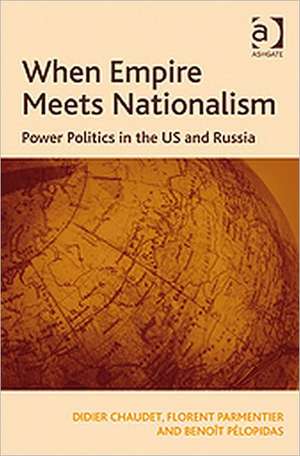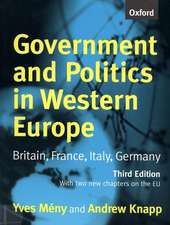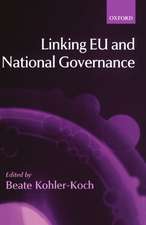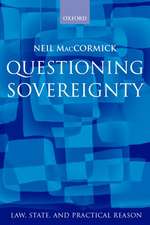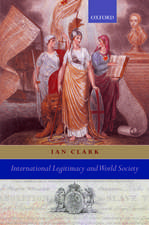When Empire Meets Nationalism: Power Politics in the US and Russia
Autor Didier Chaudet, Florent Parmentieren Limba Engleză Hardback – 28 sep 2009
Preț: 766.49 lei
Preț vechi: 1028.75 lei
-25% Nou
Puncte Express: 1150
Preț estimativ în valută:
146.66€ • 153.57$ • 121.65£
146.66€ • 153.57$ • 121.65£
Carte tipărită la comandă
Livrare economică 09-23 aprilie
Preluare comenzi: 021 569.72.76
Specificații
ISBN-13: 9780754678052
ISBN-10: 0754678059
Pagini: 226
Dimensiuni: 156 x 234 x 21 mm
Greutate: 0.58 kg
Ediția:1
Editura: Taylor & Francis
Colecția Routledge
Locul publicării:Oxford, United Kingdom
ISBN-10: 0754678059
Pagini: 226
Dimensiuni: 156 x 234 x 21 mm
Greutate: 0.58 kg
Ediția:1
Editura: Taylor & Francis
Colecția Routledge
Locul publicării:Oxford, United Kingdom
Notă biografică
Didier Chaudet was Fox Fellow at Yale University in 2006-2007, Research Fellow at the French Institute of International Relations in 2008, and is now Lecturer on Security Issues in Greater Central Asia in Sciences Po (Paris). Florent Parmentier is Fellow at the Center for European Studies at Sciences Po (Paris). He has published /Moldova at the Crossroads /in 2003 (in French) Benoît Pélopidas has been Teaching Assistant in Sciences Po (Paris) and at the University of Geneva since 2005. In 2009-2010, he is visiting fellow at the Monterey Institute of International Studies.
Recenzii
'The authors combine adroitly history and theory to propose a framework in which to put into perspective the uncertain world that unexpectedly emerged as the Cold War ended. Their motto could be: who doesn't understand the past cannot imagine the future.' Dick Howard, Stony Brook University, USA 'The authors talk in a novel way about nationalism and power politics in the contemporary world. Readers will benefit from a greater understanding of how material forces and ideas evoke the rehabilitation of imperial strategy.' Jan Zielonka, St Antony's College, University of Oxford, UK 'This important and innovative analysis of US and Russian foreign policy, particularly as it impacts the Middle East, will be of great use to both academics and policy makers.' Stephen Zunes, University of San Francisco, USA 'When Empire Meets Nationalism renews a debate in IR theory on the role of ideas in foreign policy: contrary to the neo-realist school, the constructivists tend to analyse the national interests not as givenbut as social constructions shaped by the actors' ideas, beliefs and values. The book demonstratescleverly that ideas are not opposed to rationality but intertwined with it. Based on a rich bibliography,it offers a good key to understanding today's world politics.' International Affairs 'An innovative comparison of two intellectual movements that have had considerable influence on the foreign policies of the United States and Russia in the first decade of the new century.' The Russian Review
Cuprins
Introduction; Part I The Apostles of the Empire: Intellectual Genealogies; Chapter 1 Neoconservatives, Old and New; Chapter 2 From Eurasianism to Neo-Eurasianism: Nostalgia for the Empire; Part II Imperial Calling and Nationalism; Chapter 3 Anatomy of the Empire: Imperial Nationalism?; Chapter 4 American History through the Neoconservative Looking Glass: Imperial Calling Derived from Nationalism; Chapter 5 The Empire, Neo-eurasianists and Russian Nationalism; Part III Geopolitics of Imperial Invocations: Between Cynicism, Ideology and Incoherence; Chapter 6 Islam; Chapter 7 Turkey and Central Asia; Chapter 8 The Middle East; Chapter 9 Conclusion The Impossible Empire of Ressentiment; Chapter 10 Afterword Changing People, Continuing Patterns?;
Descriere
This innovative study presents an in-depth political and sociological analysis of the internal power politics and imperial forms developed by the Russian neo-eurasianists and the neo-conservatives in the United States. It traces the growth of nationalism and the concept of 'Empire' in relation to the ideologies and foreign policy of both Russia and the USA.
